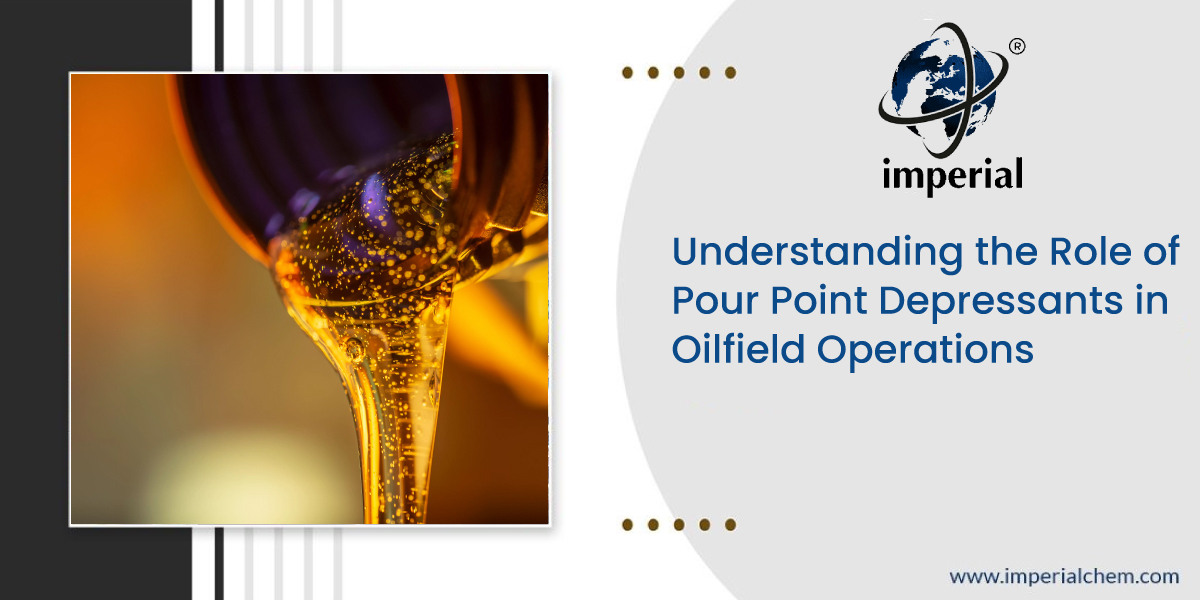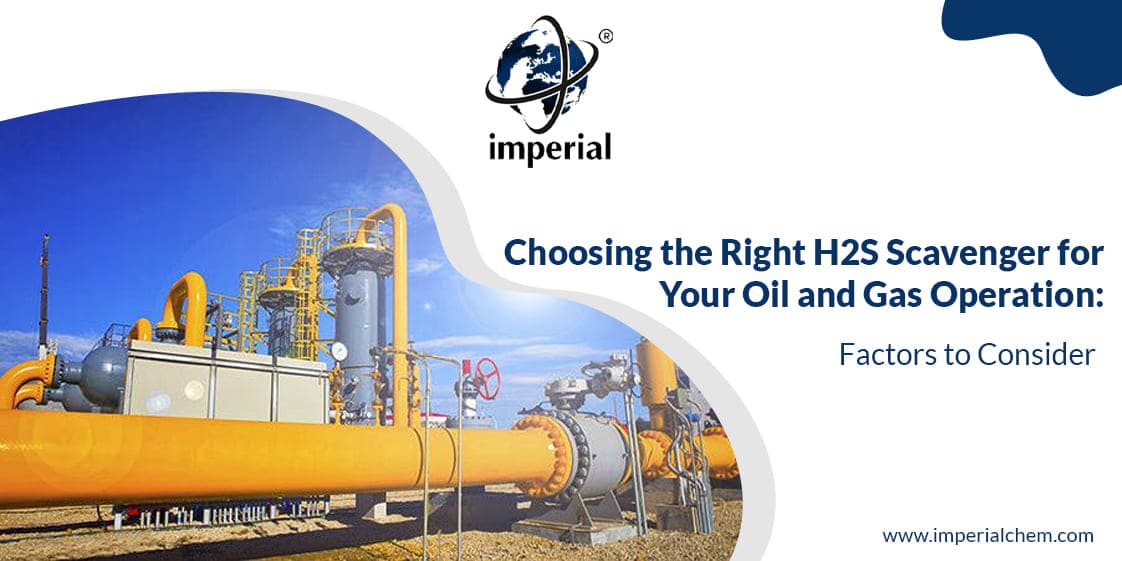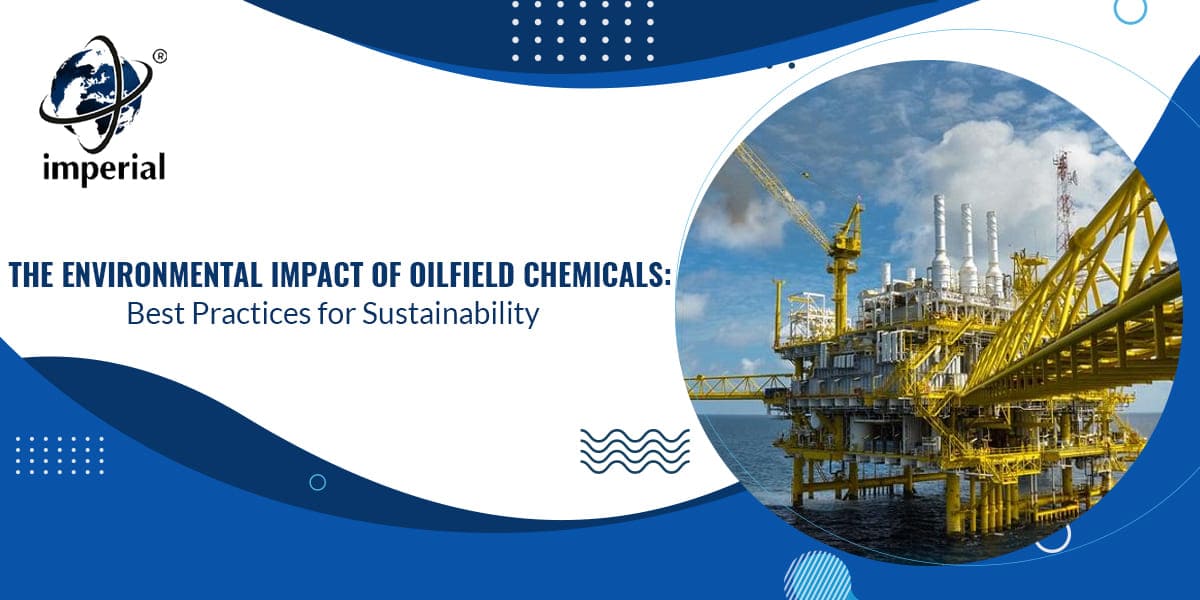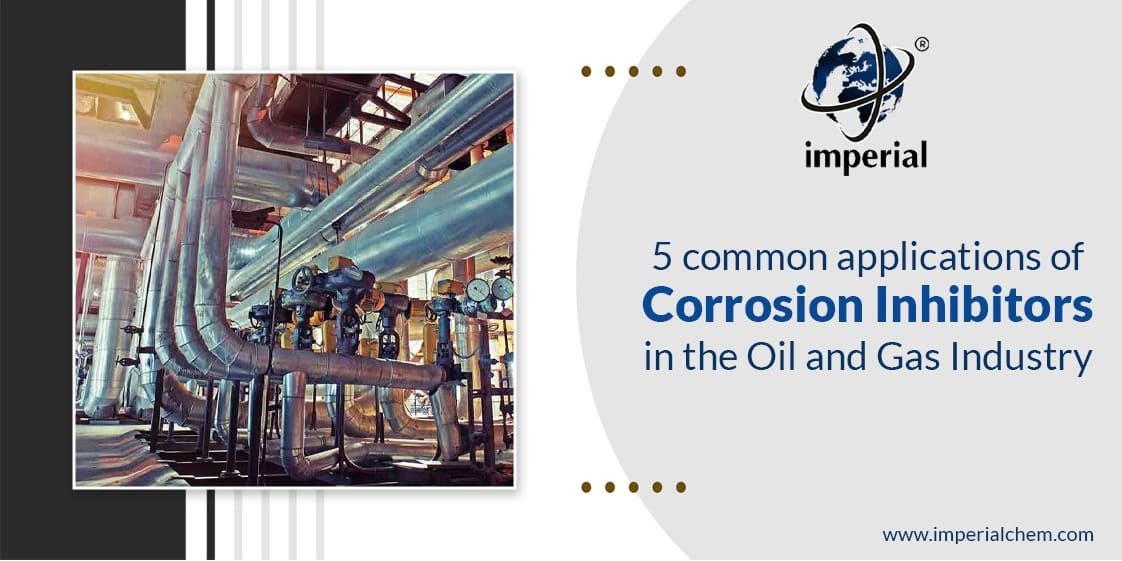- All Products
- Corrosion Inhibitor
- Oxygen Scavenger
- Drag Reducing Agent / Flow Improver
- H2S Scavenger
- Triazine
- Demulsifier
- Emulsion Breaker
- Surfactant
- Wax / Parrafin Disperssant
- Asphaltene Inhibitor

Blog Details

18
Jul
Understanding the Role of Pour Point Depressants in Oilfield Operations
The temperature at which a fluid freezes or becomes too viscous to flow can be reduced with the help of chemical additions called pour point depressants. Especially important in the winter, they keep things moving smoothly and make sure nothing gets clogged up. When it comes to controlling the pour point of oils and fuels, nobody does it better than Imperial Oilfield Chemicals, a leading Pour Point Depressant manufacturer in India.
We are a distinct Pour Point Depressant exporter to the oil and gas industry in Syria, and we offer a wide variety of pour point depressants to fulfil those needs. By altering the crystal structure of waxy components in crude oils, lubricants, and diesel fuels, these additives reduce the pour points of these substances and enhance their flow properties at low temperatures.
The efficiency and dependability of oilfield operations are maximised by the superior performance, compatibility, and stability of our pour point depressants. These additives allow lubricants and fuels to be transported, stored, and used more conveniently in chilly climates by successfully controlling their pour points.
What are Pour Point Depressants used for?
Pour point depressants are additives added to oils and fuels to increase their flowability at low temperatures. These compounds are indispensable in many fields where it is important to keep fluids flowing even when temperatures drop. If you're looking for a reliable pour point depressant manufacturer in India or a supplier in Syria, go no further than Imperial Oilfield Chemicals.
When exposed to low temperatures, the waxes and paraffin included in oils and fuels tend to harden, forming a network that impedes the free passage of the fluids. A fluid's viscosity can be lowered by using a pour point depressant, which works by altering the crystal structure of these components. The fluid is able to flow more freely, even at low temperatures, because of this.
When it comes to moving, storing, and managing petroleum products including crude oils, lubricants, diesel fuels, and more, the oil and gas sector relies heavily on pour point depressants. These additives efficiently reduce the pour point, so that the fluids can continue to be pumped even in cold areas or throughout the winter, minimising flow disruptions and supporting efficient operations.
Pour point depressants are also used in the automotive, aerospace, maritime, and manufacturing sectors. They allow automobile engines to start and run reliably, even at sub-zero temperatures. Pour point depressants help keep fuel flowing smoothly and keep fuel lines from clogging in the aviation industry. These additives also improve the oil and fuel flow in cold-operating machinery and equipment in the maritime and manufacturing industries.
Imperial Oilfield Chemicals understands the significance of pour point depressants and provides a variety of premium products formulated to fulfil market demands. They produce, export, and supply high-quality pour point depressants, which they use to effectively manage pour points across a variety of applications for maximum productivity and efficiency.
Types of Pour Point Depressants:
Pour point depressants (PPDs) are additives added to lubricants and fuels to increase their viscosity at low temperatures. For example:
● Polymethacrylates: Because of their superior efficiency in lowering pour points, polymethacrylates are frequently employed as PPDs. They improve low-temperature fluidity by preventing wax crystal formation and altering the wax structure.
● Ethylene Vinyl Acetate (EVA) Copolymers: Polypropylene (PPD) derivates (PPDs) are frequently made from ethylene vinyl acetate (EVA) copolymers. They do their job by causing chaos in the wax crystal network, which stops the wax from solidifying and makes the fluid less thick.
● Polyalkyl Methacrylates: Polyalkyl methacrylates, a type of PPD, are useful because they adsorb onto wax crystals, stopping their growth and preventing them from clumping together. This helps keep things pliable and allows for easier flow even when temperatures are low.
● Polyacrylates: Polyalkyl methacrylates, a type of PPD, are useful because they adsorb onto wax crystals, stopping their growth and preventing them from clumping together. This helps keep things pliable and allows for easier flow even when temperatures are low.
● Copolymers of Styrene and Esters: Wax crystal formation can be modified and low-temperature flow characteristics can be enhanced by using styrene-ester copolymers as PPDs. They're quite easy to dissolve and mix with other oils and fuels.
● Polyalkylphenols: Polyalkylphenols interact with wax crystals in a way that inhibits their growth and network formation, making them an effective PPD. They are frequently found in oils and lubricants designed for industrial use.
These are but a few of the many different pour point depressants on the market. Several variables, like the nature of the oil or fuel, the level of pour point reduction needed, and the needs of the application at hand, influence the choice of PPD. Being a trusted Pour Point Depressant supplier in Syria , Imperial Oilfield Chemicals provides a selection of PPDs with unique properties to address the oil and gas industry's specific requirements.
How to choose the suitable Pour Point Depressant for your Oilfield application?
It is important to take into account a number of considerations when selecting a pour point depressant (PPD) for use in the oilfield. Imperial Oilfield Chemicals, a renowned Pour Point Depressant manufacturer in India and Pour Point Depressant supplier in Syria offers helpful guidance during the selection procedure.
● Compatibility: Make sure the PPD you're using is compatible with the fuel or base oil you're working with. Think about whether or not the fluid's performance or qualities will be affected by its solubility, stability, and lack of undesirable responses.
● Performance Requirements: Identify the required reduction in pour point performance for your oilfield application. Verify if the PPD satisfies or surpasses your expectations by carefully studying its technical specs and performance statistics.
● Environmental Considerations: Take into account the PPD's effect on the planet. Choose items that are less harmful to the environment, either because they are biodegradable or because they are compliant with applicable legislation.
● Application Method: Think about how you'll be applying it and whether or not that will work with your current setup. Make sure the PPD's recommended dosage and administration methods work with your current system configuration.
● Field Conditions: Assess the temperature range and environmental conditions in which your oilfield operation will take place. Choose a PPD that can significantly reduce the pour point while still allowing the fluidity to be maintained at the lowest anticipated temperatures.
● Expertise and Support: Choose a reliable pour point depressant manufacturer with technical support, such as Imperial Oilfield Chemicals. When it comes to optimising PPD dosage and application, they can advise you and provide items that will work for your oilfield.
Imperial Oilfield Chemicals specialises in producing and supplying pour point depressants for use in a wide variety of oilfield settings. In India, Syria, and elsewhere, our knowledgeable staff can help you choose the best PPD for your needs, guarantee peak performance, and boost operational efficacy.
The Role of Pour Point Depressants in Oilfield Operations:
By enhancing the low-temperature flow characteristics of oils and fuels, pour point depressants (PPDs) play an essential role in oilfield operations. Imperial Oilfield Chemicals, a noted Pour Point Depressant exporter in Syria understands the importance of PPDs to the oil and gas industry.
The pour point is the temperature at which a fluid becomes too viscous to flow freely; PPDs are used in oilfield operations to reduce this temperature. This is especially crucial in areas where winter temperatures cause lubricants and fuels to thicken, making them difficult to move. The waxy components of the fluids' crystal structures are altered by PPDs, inhibiting the formation of solid networks and lowering the fluids' viscosity.
Assuring uninterrupted fluid flow, PPDs keep operations running smoothly by controlling the pour point. Important uses include the shipping, storing, and handling of lubricants, diesel fuels, and crude oils. Because fluids may flow freely even when temperatures are low, PPDs allow operations to continue without interruption and reduce the likelihood of costly equipment failure.
When it comes to pouring point depressants, Imperial Oilfield Chemicals has you covered with a variety of options? Our PPDs are reliable and stable and work with a wide variety of oil and fuel types. Oilfield operators in India, Syria, and elsewhere can benefit from our knowledge and specialised products by increasing the efficiency of their operations, improving their performance in cold weather, and guaranteeing the smooth flow of fluids.
Final Thoughts:
By enhancing the low-temperature flow characteristics of oils and fuels, Pour Point Depressants (PPDs) play a crucial role in oilfield operations. Particularly useful in cold locations or during the winter, PPDs keep operations running smoothly by controlling the pour point and preventing interruptions in fluid flow. If you're looking for a reliable Pour Point Depressant supplier in Syria, or anywhere in the world, go no further than Imperial Oilfield Chemicals.
Oilfield operators can better manage the risks associated with low temperatures if they have a firm grasp of the function played by pour point depressants. Operators may choose the best PPDs for their needs with the help of manufacturers like Imperial Oilfield Chemicals. Oilfield operations can run more smoothly and with less downtime and expense if pour points are managed properly. In the dynamic and challenging oilfield environment, operators can optimise their operations, improve cold weather performance, and guarantee the efficient flow of fluids thanks to Imperial Oilfield Chemicals' dedication to offering high-quality pour point depressants.











